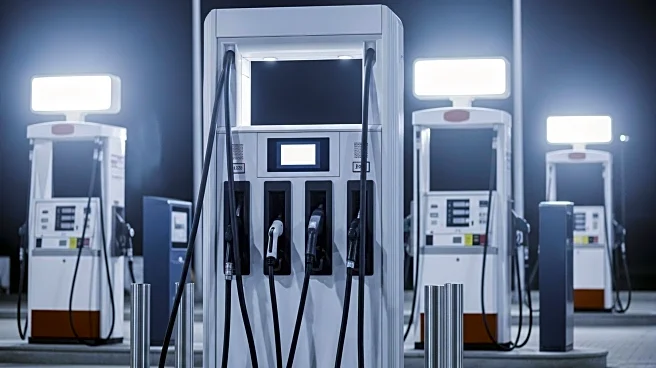What's Happening?
A recent survey indicates that nearly half of electric vehicle (EV) drivers have not experienced issues with charging due to faulty stations, suggesting improvements in EV charging infrastructure. Despite these advancements, U.S. drivers continue to favor gasoline vehicles, contrasting with Europe's shift towards electric vehicles. The survey highlights the reliability of charging stations, yet the adoption of EVs in the U.S. remains slow compared to European countries, where stricter regulations and incentives are driving the transition to electric mobility.
Why It's Important?
The persistence of gasoline vehicle usage in the U.S. has significant implications for environmental policy and the automotive industry. As Europe moves towards electric vehicles, the U.S. risks falling behind in global efforts to reduce carbon emissions. This trend affects automakers, who may need to adjust strategies to cater to differing regional demands. The slow adoption of EVs in the U.S. could impact the country's ability to meet climate goals and influence future regulatory measures aimed at promoting sustainable transportation.
What's Next?
Automakers and policymakers may need to increase efforts to incentivize EV adoption in the U.S., potentially through subsidies, tax breaks, or infrastructure investments. The automotive industry might also focus on educating consumers about the benefits of EVs and improving the availability and convenience of charging stations. As Europe continues to lead in EV adoption, the U.S. may face pressure to align with international environmental standards, prompting further legislative and industry shifts.









